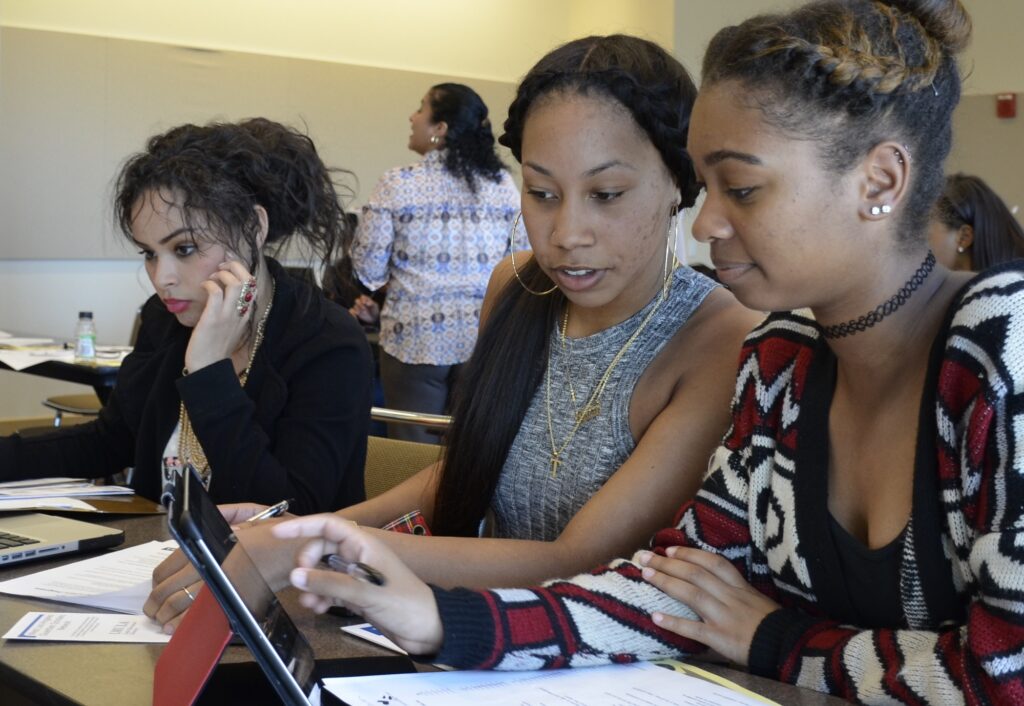Reflecting on the tenets that shape our educational practices is fundamental for …
Foster youth dreams of college amidst life challenges
Jennifer Livingstone


Since the age of 8, I resided in multiple homes and went to over five elementary and middle schools combined, along with four high schools.
Describing my upbringing as unconventional would be an understatement. However, I’m not alone. In California, 68,000 young people transitioning between foster homes are facing similar challenges to what I encountered.
As a former foster youth, my journey to college was a challenging one. Coping with living in numerous foster homes, frequent switches in schools, feelings of loneliness and detachment, and falling behind academically were just a few of the daily obstacles I had to overcome. The absence of a supportive family structure in foster care made it easy to feel overwhelmed and abandoned, lacking the guidance to navigate through difficulties.
My high school experience involved starting at a public school in my freshman year, transitioning to a Catholic school as a sophomore, and later attending two different public schools. With the frequent moves, my school records often got misplaced. For instance, during my sophomore year, I spent only two weeks at a school before switching due to issues with the foster family. Upon joining the next school, they initially placed me in freshman classes until I advocated for myself to be in the appropriate sophomore level.
This constant change left me feeling disconnected and isolated. Every move meant starting anew, having to adjust to new surroundings and people. Even state-provided support services like social workers and lawyers changed frequently, leaving me without a consistent adult figure for guidance.
The academic impact was profound. The challenges extended beyond lost paperwork and records; schools neglected my request for an individualized education program (IEP) despite my evident need. Teachers overlooked my struggles with spelling and grammar and merely passed me without addressing the underlying educational gaps. As a college student, I continue to grapple with the repercussions of these oversights.
The pivotal moment came when I was introduced to First Star, an organization supporting high school youth in foster care by guiding them towards college. They offered not only hope but tangible assistance throughout the college application process. Even after relocating from Los Angeles, they ensured I had transportation for meetings and access to mentorship. They educated me on college expenses, budgeting, and navigating financial aid applications, providing the support and trust I needed to prepare for life beyond foster care. With their guidance, I could pursue college instead of abandoning my aspirations.
I recognize that my story is not unique. Many youths like me are striving for a brighter future, aiming for college, and defying stereotypes associated with foster care. The community support I received was invaluable, instilling the confidence to chase my dreams. Presently, I’m in college and involved in assisting children with special needs, aspiring to become a school teacher in the future.
A recent report from the Foster Youth Pre-college Collective, titled “Destination Graduation,” emphasizes the necessity for enhanced support for foster care students. The report underscores a stark reality: Nearly 37% of foster youth in California fail to complete high school within four years, and less than half pursue postsecondary education within a year of graduation. The college enrollment rate for foster youth is 25% less than that of the general population.
This inequality does not stem from a lack of ambition or eagerness to learn. Foster youth, like any other young individuals, possess the same dreams and potential. Speaking from personal experience, the missing ingredient for foster youth lies in stability and nurturing attention that many children in traditional family settings take for granted. Given the necessary support, students like me can achieve significant accomplishments.
My intention in sharing my story is threefold:
- I aim to show other foster youth that there is a path to college and independence, as I stand as an example of this journey.
- I urge child welfare and education authorities to acknowledge that foster youth are more than products of their systems. We are young individuals requiring more than material provisions; we need extra support to overcome trauma, focus on academics, and rediscover our potential to succeed as young adults.
- It’s time for public systems to deepen collaborations with community organizations that understand us and offer tailored support, coaching, and encouragement needed to reach graduation day and prepare for the future.
Enhancing educational achievement among foster youth can alter the trajectory of their lives.
•••
Andi Mata is a foster youth ambassador and advocate for educational support programs for foster youth.


